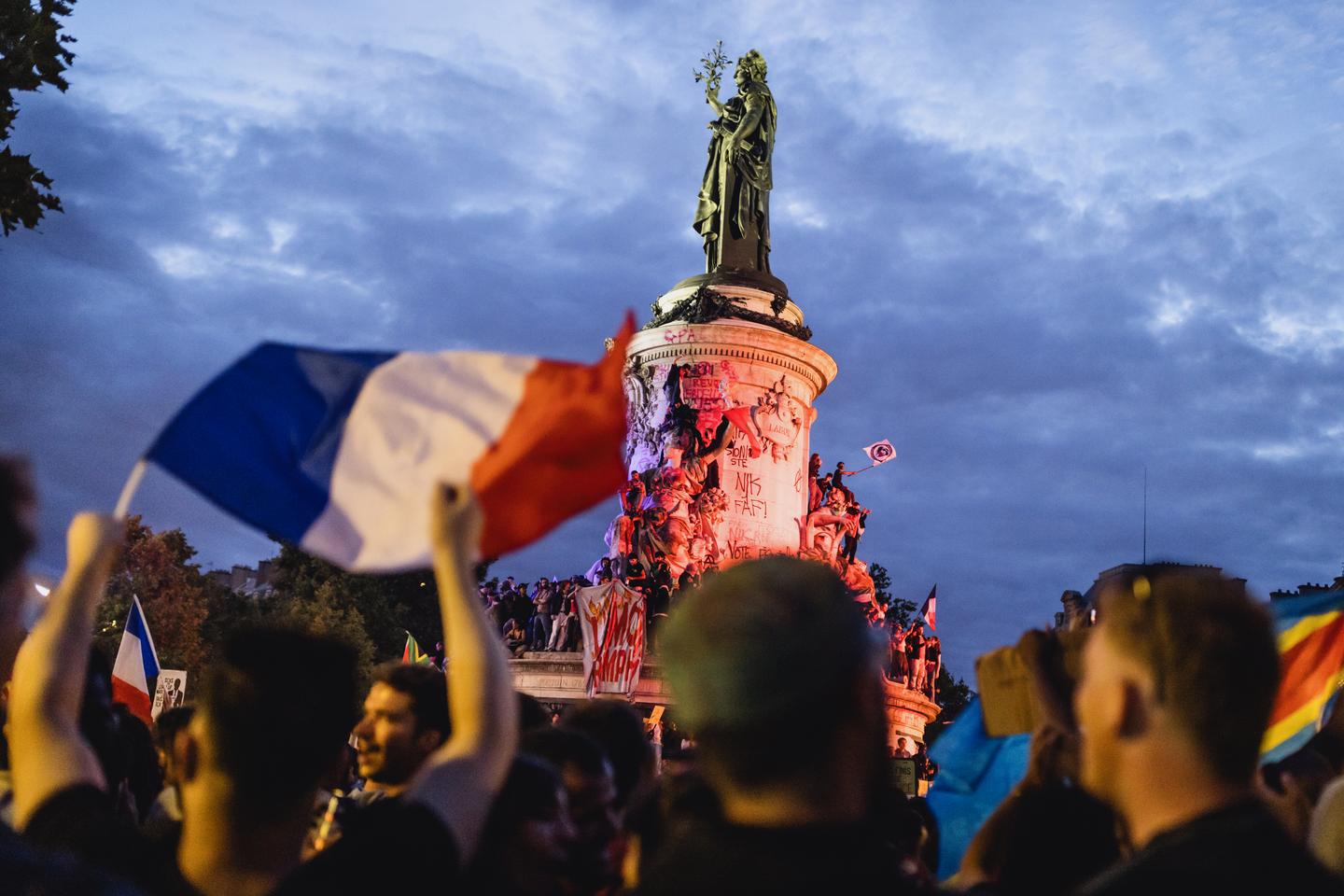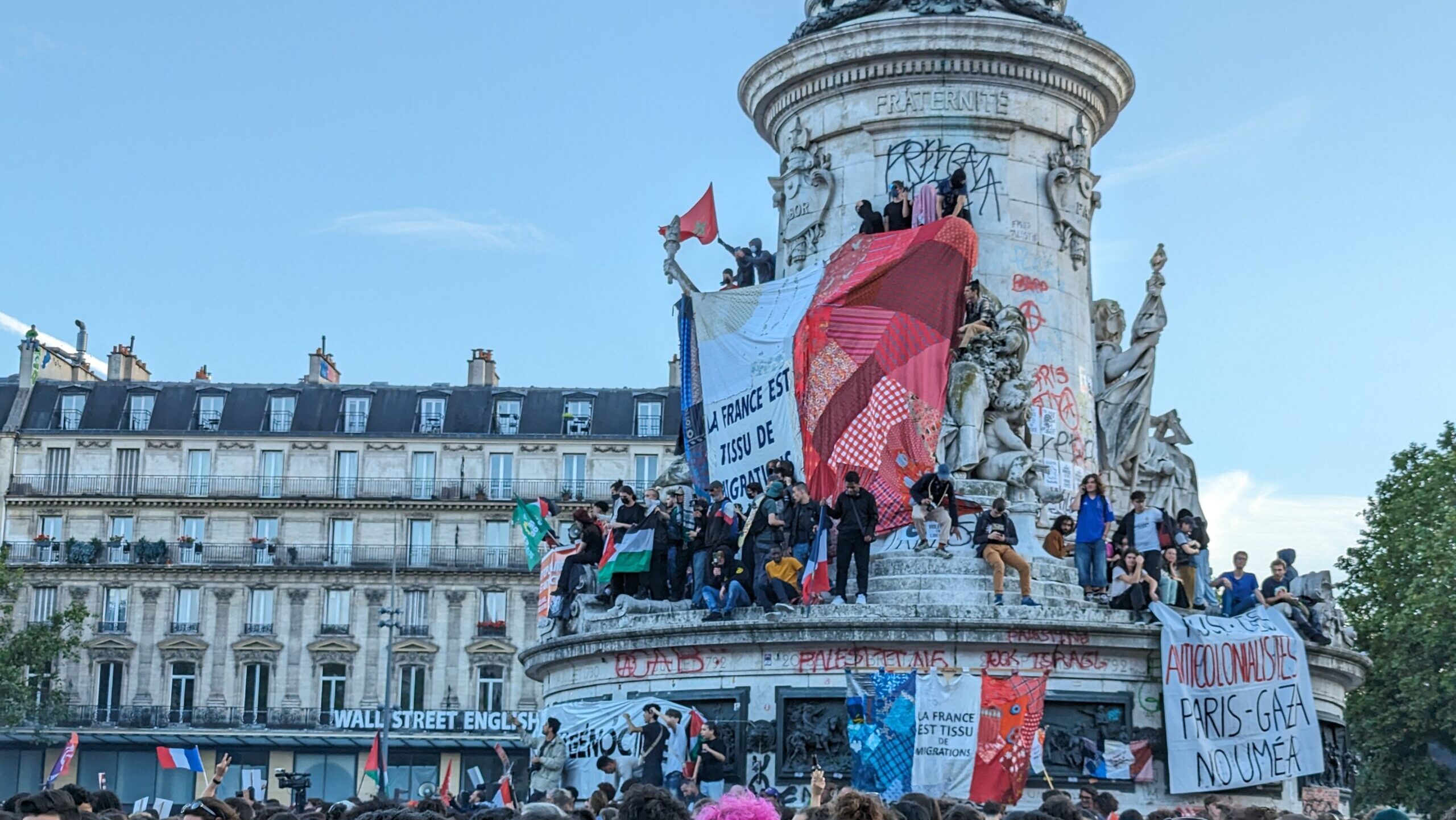




The rise of antisemitism in France has been a growing concern, with hate incidents increasing significantly in recent years. To shed light on this issue, a short film depicting the impact of antisemitic hate incidents on a Jewish family will be broadcast on all major French TV networks on Bastille Day. The film portrays the family's fear and the measures they take to hide their Judaism, such as removing their last name, mezuzahs, and curtains. Produced by Arthur Essebag and Maurice Levy, the film aims to raise awareness and promote fraternity as a core value of the French Republic. It has gained traction with the slogan 'Retrouvons notre #Fraternité.' The release of the film coincides with a political context in France where tensions related to the war in Gaza and antisemitism have been imported. Antisemitic hate incidents in France have seen a significant increase, with a 1000% rise in the last quarter of 2023 compared to the same period in 2022, and a 300% increase in the first quarter of 2024. The film serves as a powerful reminder of the importance of combating antisemitism and fostering unity in French society. [8e5ad2f6]
The defeat of the far-right National Rally in the French parliamentary elections has been welcomed by voters from diverse backgrounds in the country. Civil society groups and concerned citizens express their relief at the defeat of the National Rally, citing concerns about racist hate speech and occasional violence that are unlikely to disappear with the new parliament. France has witnessed a significant increase in racist and antisemitic acts, with a 32% spike in racist incidents and a 284% surge in antisemitic acts reported in 2023. While the National Rally is seen as a key party in emboldening hate speech, other parties, including France Unbowed, have also contributed to the rise in such incidents. The growth in voter support for the far right has made people more comfortable using xenophobic and antisemitic language in public. President Emmanuel Macron's centrist government has tightened immigration measures, exacerbating anti-immigrant sentiment. The defeat of the far right is seen as a moment of joy and hope for many, but it is acknowledged that the fight against racism is far from over. [2bb75565]
In the second round of the French parliamentary elections, France's left-wing New Popular Front (NFP) coalition surged to first place, taking at least 181 seats and surpassing President Emmanuel Macron's centrist party, which took second place with about 160 seats. Marine Le Pen's far-right National Rally (RN) fell to third, winning only 143 seats despite leading in the first round of voting. Macron's decision to hold snap elections after his centrist coalition's major loss in the recent European Union parliamentary elections shocked the country and the world. The NFP's victory was a devastating blow to Le Pen's RN. Macron's senior advisers claim that the high-risk gamble of snap elections had been planned for months by a select few officials. The NFP coalition includes the far-left France Unbowed party, France's center-left Socialist Party, Greens, and Communists. Macron will now have to appoint a new cabinet and attempt to govern alongside a hung parliament for the remaining three years of his term. [8a08230e]
France is facing a hung parliament after elections on Sunday, with no party securing an absolute majority. The left-wing New Popular Front (NPF) won 177 seats, compared to 148 for President Emmanuel Macron's centrist bloc, known as Ensemble, and 142 for the far-right National Rally. The National Rally fell short of expectations, but still secured its highest ever number of seats. Voter participation was the highest in over two decades, at nearly 60 percent. Projections suggest that the NPF will be the largest bloc, but no party or alliance has an absolute majority. Months of political instability and gridlock could lie ahead for France. [27fd6869]
The recent French elections saw two out of three voters rejecting the expected victory of the far-right party, Rassemblement National (RN), not primarily due to enthusiasm for the economic policies of other parties, but because they abhor and fear the racist France promised by the RN. The RN carries the old post-Algerian war anti-Arab racism, and racism has been central to the election campaign. Anti-racism, however, has never been more politically powerful in uniting the defenders of republican values. The electoral map shows that the less diverse the population, the higher the far-right vote. Racism is increasing in the workplace in France, and fighting social jealousy means putting an end to identity confinement. The article emphasizes the need for the left, which won the elections, to clarify its position on this divisive issue. [c8a219c9]